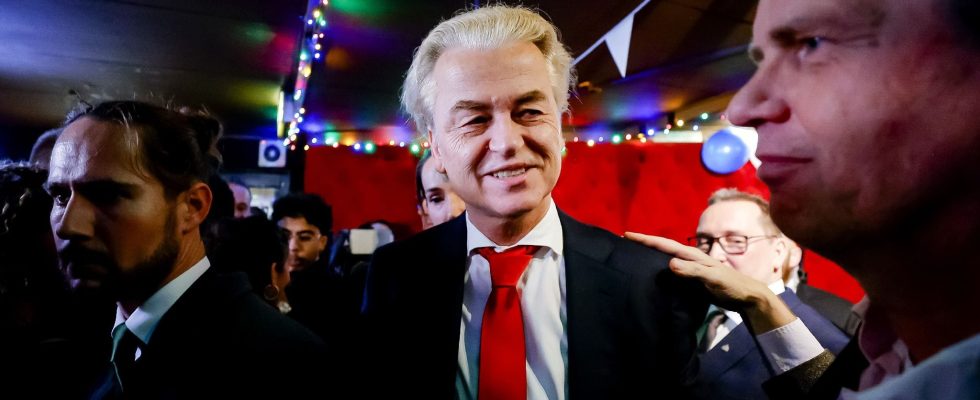Right-wing populism is taking hold in Europe and around the world under the sleepy eye of democrats and liberals who seem to think that it will pass, like an attack of juvenile acne passes. Geert Wilders, the Dutch Trump, came out on top in the legislative elections – to define “Trump”: you have to sport a breathtaking hairstyle, made of improbable but remarkable dye, outrageously botched blow-drying or a style you fell out of bed as a teenager – “I didn’t have time to do my hair” – and deploy unexpected gestures and vocabulary, somewhere between Grand Guignol and crude caricature. It’s Bolsonaro the Brazilian who, in the absence of a stunning hairstyle, talks about the Covid vaccine which would transform men into crocodiles or make women grow beards, and who, after kissing his wife during a meeting, asks the crowd: “Unstoppable!” ; it’s Javier Mileil who campaigns with a (real) chainsaw to cut through the pile of state aid or who adds “brothel” at the end of all his sentences; all based on the uninhibited model of an authentic version of Trump who wondered if drinking bleach could cure Covid.
Geert Wilders has been repeating the same thing for twenty years: we must consider Islam not as a religion, but as a totalitarian ideology, and therefore ban mosques, Koranic schools and the Koran. He wants a “Ministry of Immigration, Remigration and De-Islamization” alongside which Nicolas Sarkozy’s Ministry of National Identity acts as a Disneyland of human rights. He is also a fervent admirer of Putin and a convinced climate skeptic. For the first time, during the last legislative campaign, he widely defended social rights. Democrats and liberals hope that this is what allowed him to win: riding on inflation and the feeling of decline in the middle classes. It would be so much more comfortable!
And if it was really uncontrolled immigration, the feeling of loss of identity, the lack of recognition of a Western culture which caused the coming to power of policies which are not so much transgressive as haloed by a form of authenticity that contrasts with the polite postures of politicians who have been fed communicators for thirty years? When we are still in France wondering whether Manuel Valls or Gérard Collomb were right or wrong, we can frankly doubt the desire of the democrats to avoid the coming to power of our national populist, Marine Le Pen. The “two irreconcilable lefts” (Valls) are falling apart before our eyes, France is already no longer side by side, but face to face (Collomb) since the day when the pork substitute dish became widespread in all canteens of France was no longer enough, and that halal, vegetarian, everything that could mark the border between certain French people and others was needed, since the day when too many teachers decided that finally the veil it was not so serious and it was necessary to take into account the sensitivity of the students, not to offend their family culture and origin, thereby forgetting the primary vocation of the school.
I don’t know if Geert Wilders, Jimmie Akesson (leader of the Swedish far right), Giorgia Meloni or Viktor Orban are authentic. But they hold the rail of their convictions without seeming to bow to what is being done, what is not being done, what is being said, what is not being said. That the nature of their comments borders on racism, or even openly racist and homophobic, is distressing, but voters above all seem to hear the strength of their certainties. And that seems enough to vote for them.
The Democrats and Liberals are terribly lacking in firmness: by trying to convince everyone, by seeking compromise, they have become transparent. While we expected from them an offensive speech in defense of our democratic values, a firm rigidity in the face of the attacks suffered, by autocrats from the outside as well as by opponents from within, they fit into a bland and expressionless, hoping for a start that may never come.
Abnousse Shalmani, committed against the obsession with identity, is a writer and journalist
